The aim is to stifle free speech, says journalist Gowhar Geelani
Geelani is the third journalist recently booked by Indian authorities for 'anti-national activities'
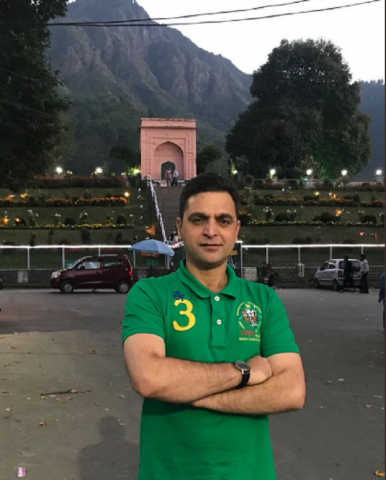
PHOTO COURTESY: TWITTER/@GowharGeelani
Police in occupied Jammu and Kashmir booked Kashmiri author and journalist Gowhar Geelani on Tuesday on charges of “glorifying terrorism in Kashmir Valley”. Gilani is the third journalist booked in an FIR by the Indian Occupied Kashmir (IOK) police in the past week.
The 38-year-old journalist, who has been reporting on Kashmir for various regional and international publications, was booked under the stringent Unlawful Activities (Prevention Act), under which a person can be jailed for up to seven years.
He is the third journalist against whom the IOK police has filed a First Information Report (FIR) in the last week. Only days prior, a photo-journalist from Srinagar, Masrat Zahra,was booked under the same.
Amid reports of increasing hostilities by the Indian state in occupied Kashmir, in an exclusive interview to The Wire, Geelani spoke of the implications of police action against journalists in the disputed region. Read the interview below:
Why do you think the police have booked you? How do you see these charges against you?
That is for the police to answer. You can see many previous tweets of the current administrator and an SP-ranked police officer, critical of Narendra Modi, calling him a “sadist” or referring to the BJP’s ideology as “Hindutva terror” or even referring to democracy as “mobocracy”. You and I may not agree with the language used by the officers, but they have a right to their view. Obviously, there is no merit in the frivolous, concocted, motivated and baseless charges.
All I can think of is that they don’t like anyone who is articulate, civil and reflects the ground reality in his or her body of work. The target is not an individual, the assault is on journalism.
Do you think being vocal about issues pertaining to Kashmir, and especially voicing your opinion on social media is being criminalised?
Of course, the current dispensation wants to legitimise only one view – that is their own – and criminalise all other points of view. Basically, it wants journalists to become stenographers. As journalists and writers, we are storytellers and words are our tools to tell the stories of real people.
You are the third journalist to be booked in Kashmir in the past 24 hours. Do you think there is a pattern?
Yes, journalists have faced the wrath of both state and non-state actors (militants) in the early 1990s; have been sitting ducks for the government-sponsored band of gunmen (Ikhwan) in the mid-1990s; have witnessed the curtailment of advertisements from 2008 onward.
But the ugly pattern of intimidating journalists has only intensified since August 2019. Many senior colleagues have been humiliated, summoned to police stations and questioned for hours and pressurised to reveal the sources of their stories. In the latest episode of booking journalists, the process is the punishment. The aim is to stifle free speech and create a silence of graveyards in Kashmir. There is a chapter in my book which talks about various pressures on journalists from all sides.
Intimidation and harassment of journalists is not something new in Kashmir. However, now journalists are being booked under criminal and terror charges. Has anything changed this time?
This is very dangerous. With the abuse of power and misuse of laws, the objective is to create permanent fear and ensure that only the government’s narrative is highlighted while ignoring the many facets of the conflict in Kashmir.
https://tribune.com.pk/story/2194387/1-kashmiri-leadership-lauds-un-chiefs-call-release-iok-prisoners/
Is the media not ‘behaving’ as per the government’s wishes? Is it a pressure tactic?
The short and sweet answer is yes. See, I was not allowed to travel to Germany last year to rejoin Deutsche Welle as an editor soon after my book Kashmir: Rage and Reason was released.
Freedom of expression seems like a far-cry. How do you explain this situation? What does it reflect about India in 2020? It has not fared well in the Reporters Without Borders (RSF) ranking as well.
Well, the ranking itself speaks. In cricket, we use the phrase, ‘let the bat do all the talking’. Here the curbs do all the talking.
You have grown up in Kashmir and witnessed the turbulent 90s and started reporting later. Has the situation changed for better or has it worsened?
These are terrible times. In the 1990s, I was a kid. I began my career in the mid-2000. So, the journalists who reported during that decade may be in a better position to draw analogies.
How do you see the work of local media in Kashmir and what do these cases mean for them?
The local media has been silenced. No two opinions about that. The newspapers seem like government handouts. We understand there is immense pressure, but then we must also remember ‘As long as Sarajevo Exists’. For about six months after Jammu and Kashmir lost its semi-autonomous status and statehood, the editorials and opinion pieces were about health benefits of cucumbers apricots, how to treat diabetes and thyroid, and what was happening in the African continent. Everything but Kashmir.
How are journalist bodies responding? Do you think journalists booked by state receive the support required from their organisations and journalistic bodies?
The support is massive from the fraternity, journalist bodies, CPJ, Amnesty International, IFJ, RSF, global advocacy groups, even by various shades of important political formations as everyone understands the aim is to criminalise opinions.
How do you think this situation will affect Kashmir’s reportage?
It is a challenge. And in challenges, lie opportunities. Journalists have to stand up for their rights. Or else there will be no one left to speak up.
Journalists and writers are storytellers. They tell people’s stories and explain events in the proper and historical context with an analytical sweep.
As a journalist, it is my job to write, to tell stories, and to analyse and interpret different situations and events on the ground. I have been telling all kinds of stories from Srinagar to Berlin, from New Delhi to London. A journalist can’t make all sides happy. Someone always finds something unpalatable. But that’s a journalist’s professional predicament. During my professional career spanning over 15 years, I have been writing stories about the marginalised and the dispossessed, the powerful and the powerless — all kinds of stories, the tragedies and triumphs.
https://blogs.tribune.com.pk/story/95104/kashmir-is-not-equipped-to-deal-with-covid-19/
I have been showered with accolades by people and reputed independent institutions. At the same time, I have witnessed many ups and downs in my career. I have faced abuses and threats from the rightwing trolls. I have been accused of bias by competing ideological camps in Kashmir – left, right and centre.
Intimidating tactics from any quarter won’t cow me down. I will continue to do my job with sound professional judgment. It is a badge of honour for a journalist when the dispossessed love your body of work and the powerful dislike it.
Obviously, all the charges made against me are concocted and baseless. The aim is to silence all the remaining critical and sane voices and to criminalise opinions and journalism in Kashmir.
As I have not yet formally received a copy of the FIR and the so-called complaint received by the cyber police station, I hope that the police will provide me with a copy of the same without any delay, so that I can prepare my legal defence. I will surely cooperate with the investigation and am ready for the trial.
Memory will win. Words are a writer’s weapons. All I have are words. Let me assure one and all that journalism and words will stay and survive. Censorship won’t. All my life I have been an advocate of non-violence, have condemned violence in all forms and manifestations and have stood for the rights of people and free speech.
I thank my family, friends, colleagues of my fraternity and all the people in and outside Kashmir for their support and solidarity!
“Na siley ki na sataish ki Tamanna humko, haq main logoun ki to hamari hai aadat likhna. (Neither do I desire appreciation nor do I desire applause, writing in favour of people is in my blood.)"
This piece was originally published in The Wire on April 23rd, 2020.

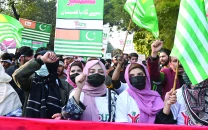
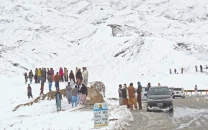
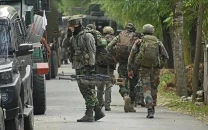
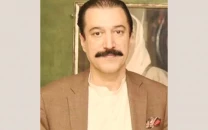
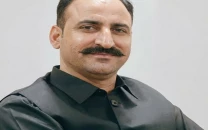
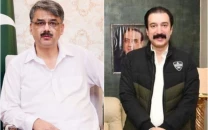












COMMENTS
Comments are moderated and generally will be posted if they are on-topic and not abusive.
For more information, please see our Comments FAQ